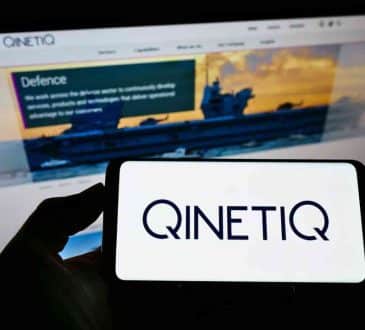CEO COMMUNICATION AND CULTURE: WATCH YOUR WORDS AND STOP ‘GIVING BACK’

WORDS GO WRONG, SO MAKE THEM RIGHT
Leaders know the importance of picking words with care and using them with precision. Words have impact even if spoken in passing; moreso if written, recorded, messaged and distributed. It’s worth the effort to get wrong words completely out of the conversation and erased from writing and messaging. The only way to do that is to substitute in the right ones, build them into the organization’s culture, and live them.
This is true even of two simple little words gone wrong, three syllables total, which have crept into common usage. They’re meant to express something noble and laudable, which we should all do more of.
Giving Back
Not a thing is wrong with “Giving.” Free-handed help for those in need and giving to invest in the community are pillars of ethics and religion. You can’t really call yourself a professional success and complete human being if you’re not giving of self and substance to others.
But tell me where, where in the world, did the “Back” come from? Doesn’t it undo the meaning and spirit of giving by mixing it up with taking, the exact opposite. Clearly, you must have taken something from somebody that you now have to give back.
Of course, you did nothing of the kind. Thoughtful objections to the phrase “Giving Back” have been raised for years now. Praise goes to the wise Rabbi Daniel Lapin for doing it especially well, in his highly recommendable writings. But like the proverbial bad penny, G-B keeps turning up.
Enough already. Now it gets personal. This upcoming weekend I take a stand, becoming the first CEO I know of to officially discourage, de-incentivize, and ban saying the words out loud, not just for my company teams but for members of a select clientele. The Crown Council consists of top dentists and their practice teams, and we’re about to host its 27th yearly gathering. This is called the “Annual Event” because, you know, that’s what it is. And for precisely the same reason – saying what the thing is – here are the two words to sub in and replace, once and for all, “Giving Back.”
Doing Good
That’s what generosity at organizational and individual levels is about. It’s not transactional, like some sort of repayment. It’s not guilt-driven, a separate box to check outside of professional and personal obligations, or performative for self-promotion. It’s good to do just because it’s good. And that is reason enough to say it and mean it.
RESET, RETHINK
Our word pivot begins with declaring a “No Giving Back Zone.” Should somebody slip up and speak the words, they are asked to make a $1 donation to the Crown Council’s affiliated nonprofit, The Smiles for Life Foundation. For in-person payment there’s a credit card reader and box for cash at the nonprofit’s table. They’re both prominently labeled “Doing Good.”
The buck is beside the point in a group that already gives a great deal to myriad worthy causes and this one in particular. Crown Council practices formed The Smiles for Life Foundation 25 years ago to engage and benefit in-need people worldwide. Total funds raised are about to surpass $50 million. It’s likely that anybody who drops a buck will have donated professional time and services for the annual Whitening Campaign, a major fundraising initiative. They may have stories about doing humanitarian dentistry on foundation-supported expeditions in the Dominican Republic, Guatemala or Nepal. Here in the U.S., they could be committed to the Smiles for Life’s growing effort to broaden access to care for those with intellectual and developmental disabilities.
This doesn’t mean they would call charitable investment in others’ health and well-being “Doing Good.” Or that falling into the usual fallacious phrasing won’t fuzz up thinking at least a little. The point of the whole exercise is clarity of understanding and purpose: Re-speaking begets rethinking, which we will encourage by making “Doing Good” one of the Annual Event’s running themes.
GRATITUDE TO GANDHI AND DAD
The first part of the “Doing Good” message is not just, as many would expect, encouragement to do more. First, it’s a challenge to step back and appreciate how much good you already contribute, even when you earn money doing it. You’ll be surprised. With oral health, it’s obvious: People feel and look better. Other services and products have parallel perceived benefits. People consider what you provide to be good, or they wouldn’t pay you enough to stay in business. Beyond that come major, multiplying effects. Providing gainful employment has positive value for individuals, their families, society, and the government.
Having purged G-B, it’s time to knock down walls between career and off-hours, between for-profit work and traditional charity. To be sure there are boundaries that make sense for scheduling, accounting, tax filing purposes, but there is a greater whole-life truth about Good: It knows no boundaries.
To quote the great leader and sage Mahatma Gandhi, who did a world of good: “Life is one indivisible whole.”
Gandhi’s words ring like a bell with wisdom originally imparted to me by the best guy I ever knew, also my lifetime best teacher of business principles and practice. I mean my father, the late Arthur S. Anderson. I’ll never forget how, during my 12th year, Dad taught me about the meaning and significance of doing good in both business and in life. He delivered the lesson and many, many more for me and my six siblings at the dinner table by leveraging something that happened to one of us during the day. Wisdom, he taught, is knowledge rightly applied.
The wisdom, in this case, started one day by Dad feigning upset because I refused to take money from his mother, aka Nana to us kids, for yard work at her house. I briefly imagined that Dad was upset because I hurt Nana’s feelings, but then Dad said he was pleased and proud, as was Nana. He then did a dinnertime Q-and-A that led to wisdom and understanding about why it’s good to give and do things worth money gratis, because it’s good, and how this makes you better in your business.
Back when Dad taught me about doing good, nobody on the planet would have called it “Giving back.” That meant what it still means in my house and probably yours if you have children: “Give back the (fill in the blank) to your (sibling, cousin, whoever) right now!” Giving back, in this still-current meaning, isn’t good.
I’m curious about how the thing became a wrong-headed meme for plain and simple giving, but not two percent as much as I want to see it go away.
EXECUTIVE CHALLENGE
The challenge to you is to put the words “Doing Good” to work for yourself and your organization. Lead a team committed to doing good. Plant this grand, embracing concept in the hearts and minds of one and all, C-Suite to the front line. Say it, write it, message it, and live it.
Use this “Giving Back” thing as a reminder to watch your words. There’s peril in parroting phrases that are incongruous with intended thought and action, some of them worse than G-B. Good words always do more…good!
Written by Steven J. Anderson.
Have you read?
# Best CEOs In the World Of 2022.
# Best Citizenship and Residency by Investment Programs.
# These are the world’s most and least powerful passports, 2022.
# The World’s Richest People (Top 100 Billionaires, 2022).
# Case Study: Warren Buffett, LVMH’s Bernard Arnault, Apple’s Tim Cook, and Elon Musk.
Add CEOWORLD magazine to your Google News feed.
Follow CEOWORLD magazine headlines on: Google News, LinkedIn, Twitter, and Facebook.
This report/news/ranking/statistics has been prepared only for general guidance on matters of interest and does not constitute professional advice. You should not act upon the information contained in this publication without obtaining specific professional advice. No representation or warranty (express or implied) is given as to the accuracy or completeness of the information contained in this publication, and, to the extent permitted by law, CEOWORLD magazine does not accept or assume any liability, responsibility or duty of care for any consequences of you or anyone else acting, or refraining to act, in reliance on the information contained in this publication or for any decision based on it.
Copyright 2024 The CEOWORLD magazine. All rights reserved. This material (and any extract from it) must not be copied, redistributed or placed on any website, without CEOWORLD magazine' prior written consent. For media queries, please contact: info@ceoworld.biz
SUBSCRIBE NEWSLETTER








